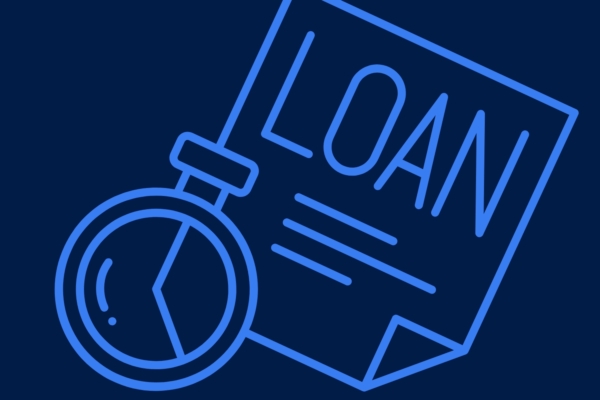
What Is a Jumbo Mortgage? Your Texas Guide to Non-Conforming Loans

They say everything is bigger in Texas—and houses are no exception. If you find yourself in the market for a large home in the Lone Star State, you may need a jumbo mortgage to make it happen. These specialized loans are designed for properties that exceed the standard loan limits set by the federal government.
Whether you’re buying a luxury home in Austin, upgrading in Dallas, or settling into a spacious property anywhere in between, understanding how jumbo loans work in Texas can help you make smart decisions about financing.
What is a jumbo mortgage?
Typically, when a person buys a house, they take out a loan known as a conforming loan—in other words, a mortgage that meets the size limits and guidelines set annually by the Federal Housing Finance Agency. But for higher-priced homes, a conforming loan might not be enough. That’s where a jumbo mortgage comes in.
Unlike conventional loans, jumbo mortgages aren’t eligible to be purchased by government-sponsored entities like Fannie Mae or Freddie Mac. Because of that, lenders take on more risk—and often require stricter qualifications from borrowers.
Jumbo loans are common in high-cost housing markets, but you don’t have to live in a major metro to need one. Buyers looking at luxury homes, large properties, or homes in competitive areas may all find themselves exploring jumbo financing options.
From Mortgages to Home Equity Loans
Our local, award-winning lending team is ready to help you begin today.
What is the limit for conforming mortgage loans in Texas?
For all counties in Texas, the conforming loan limit for a single-family home in 2025 is $806,500. If you’re looking for a loan more than that, you’ll need a jumbo loan.
Keep in mind that this limit can vary slightly in high-cost areas across the country—but Texas does not have any counties classified as high-cost for 2025. That means whether you’re buying in Austin, Houston, Dallas, or a smaller town, the same $806,500 limit applies statewide.
Pros and Cons of a Jumbo Mortgage
Jumbo mortgages can be a great solution for financing a high-value home, but they’re not the right fit for everyone. Consider these advantages and drawbacks before applying.
| Pros | Cons |
| You can finance more expensive properties. Jumbo loans make it possible to buy homes that exceed conforming loan limits—ideal for high-cost markets or luxury properties. | Qualifying requirements are stricter. Borrowers usually need a higher credit score, a low debt-to-income ratio, and significant income or assets. |
| Interest rates can be competitive. Historically, interest rates for jumbo loans are higher than conforming loan rates. However, for well-qualified buyers, interest rates on jumbo loans can be similar to or even better than conventional loans. | Down payment requirements are often larger. Many lenders require 10–20% down, which can be a barrier for some buyers. |
| Loan terms are flexible. Jumbo loans are available in a variety of term lengths and structures, including fixed and adjustable-rate options. | More documentation is required. Lenders may ask for detailed income verification, tax returns, and asset statements to approve a jumbo loan. |
Jumbo Mortgage Alternatives
Not sure a jumbo loan is right for you? There are a few workarounds that might help you stay within conforming loan limits—especially useful if you’re buying in parts of Texas where home prices are near the edge of the threshold.
Purchase Money Second Mortgage
This is a common strategy where you take out two loans at once:
- A first mortgage up to the conforming loan limit
- A second mortgage— known in this case as a purchase money second—for the remaining balance
This setup can help you avoid jumbo loan requirements while still covering the full purchase price. It’s a popular option for buyers in competitive markets like Austin or Dallas, where home prices often flirt with the conforming cap.
Paying a Larger Down Payment
If your dream home puts you just above the conforming limit, increasing your down payment might bring your loan amount below the jumbo threshold. This allows you to stick with a conventional loan—and avoid stricter qualification standards.
Jumbo Mortgage FAQs
Here are some answers to common questions borrowers have about jumbo mortgage loans.
How much do I need for a down payment on a jumbo loan?
It depends on the lender, but many require at least 10% to 20% down. Some lenders may ask for even more if your financial profile isn’t especially strong.
Can I refinance a jumbo loan?
Yes. Jumbo mortgages can be refinanced, just like conventional loans. Refinancing can help you lower your rate, change your loan term, or tap into home equity—though qualifying requirements may still be strict.
What credit score do I need for a jumbo loan?
Most lenders look for a credit score of 700 or higher for jumbo loans. The better your credit, the more favorable your terms are likely to be.
Can I get a jumbo loan for a second home or investment property?
Yes, but expect tighter restrictions. Down payment requirements and loan-to-value limits are usually stricter for non-primary residences, and lenders may want to see more financial reserves.
Are jumbo loans harder to get approved for?
Generally, yes. Because jumbo loans aren’t backed by Fannie Mae or Freddie Mac, lenders take on more risk. That means they typically require more documentation, stronger credit, and better overall financial health.
Do jumbo loans have mortgage insurance (PMI)?
In most cases, jumbo loans do not require private mortgage insurance (PMI)—even with a down payment below 20%. However, lenders often offset that risk with stricter requirements, like higher credit scores or larger cash reserves.
Final Thoughts Before You Buy
Buying a home that exceeds the conforming loan limit doesn’t have to be complicated—as long as you understand your options. A jumbo mortgage could be the key to financing a high-value home in Texas, especially in markets where prices regularly push past the standard limits.
While these loans come with stricter requirements, they also offer flexibility and competitive rates for qualified buyers. And if a jumbo loan doesn’t feel like the right fit, alternatives like a purchase money second mortgages might help you stay within conventional limits.
As always, your best next step is to talk to a local lender who understands the Texas market. They can walk you through your options, run the numbers, and help you figure out the smartest path to financing your dream home.
Ready to get prequalified?
Apply today and start your journey toward your new home.




